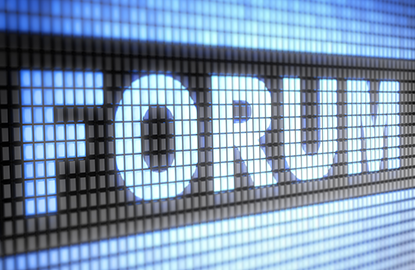
Next year, the Year of the Rooster, portends a great deal of political and economic events, the consequences of which few will be confident of foretelling.
One of the seismic changes will centre on “the war on cash” — or in political doublespeak, the transition to a digital economy.
The outlawing of bills of large denomination and the imposition of measures by central banks — sometimes with real venom as in the case of India — have been ominously coordinated as if by design. India has outlawed its 500 and 1,000 rupee notes.
In Australia, financial groups such as Westpac and Citibank are aggressively going digital even as officials with the Treasury Department suggest that eliminating cash will “save billions”, and that moving to a cashless society is the “next step” for the Australian dollar. Citibank Australia has reportedly taken these comments to heart, declaring that it will no longer accept coins or notes, only digital transactions.
In the US, the 100 dollar bill will be consigned to the annals of history by 2018.
And in the EU, Mario Draghi has been a fervent advocate of phasing out bills of large denomination, including the 500 euro note, a move that the head of the EU anti-fraud office, Giovanni Kessler, defends because such large bills “make the life of fraudsters that much easier”.
In Malaysia, similar moves are occurring. Measures to render physical cheques obsolete are well underway while regulators are legislating the use of debit cards and PIN-based credit cards to heighten security and therefore smooth the use and adoption of credit-based digital consumption.
In fact, China, France, Germany, Denmark, Hong Kong, Venezuela, Ecuador, Ireland and Israel have all mounted or are in various stages of executing measures to outlaw or reduce cash in their economies in a transition to a cashless economy.
The narrative the world over is uniform and well preached by key “credible” members of society. Whether the media, banks, academics or politicians, the chorus is the same: cashless is good and removing money as we know it from the system will cure the world of its ills.
For folks who seriously doubt the benevolence and goodwill of governments in terms of their avowed intention to kill cash off because it aids drug dealers, foments terrorism, affords tax evasion and generally abets criminal activities, the real reason is simply this: When the war on cash is won (some say within 10 years) and entire economies are 100% digital, there will be no hiding from the tax man. The surveillance of your financial comings and goings will be total and complete.
Big Brother, who, according to George Orwell and an assortment of other more recent authors, already know who you consort with, what you say to them, how you spend your free time and a whole bunch of your other supposedly “personal activities”, whether it be surfing for porn or politics, ranting about corruption or organising a coup or indeed a tea party.
If for one minute folks believe Google “won’t be evil” or WhatsApp messages are totally secret, think again. And once the economy goes 100% digital (read: monitored), the capture will be complete.
Also, the war on cash will not democratise wealth. The current scheme of things already precludes the poor and marginalised from credit/debit instruments and banking services. In a fully digital economy, their lot will likely be considerably worse off.
In an ideal world, governments have no business to be involved in our transactions. Who are they to dictate how we satisfy the purchase of a bar of soap, when a goat and two chickens used to do just fine, thank you very much?
Folks already ensnared in the use of fiat currencies, aka Version 1.0 of governments’ attempt at control, will soon be given a free software upgrade.
What we are witnessing today is the new and all-improved, all-singing, all-dancing Version 2.0, which should capture all and sundry hereupon because bank and technology infrastructure regulation has already put all the key institutions of a digital economy in governments’ control.
Of all the grey and black swan events due for debut in 2017, the war on cash is surely the scariest. Luckily, the conflict has only just begun. In India, where the conflict was set alight by a surprise demonetisation, society is close to anarchy. And no wonder — the crooks are still running free while the little guy, who was meant to be rescued by demonetisation, is the most hurt.
Counter strategy? Forsake digital. Stay in cash, stay in physical. Embrace alternative currencies and payment options and perhaps even transact one to one instead. Maybe even read up on Bitcoin, PayPal and the myriad alternative currencies springing up around the world.
As always, the quest for power and lure of greed attract the best and brightest, such that their solutions are always the most hypnotic and devilishly clever. In this respect, little has changed since time immemorial.
Khoo Hsu Chuang is a contributing editor at The Edge Malaysia
Save by subscribing to us for your print and/or digital copy.
P/S: The Edge is also available on Apple's AppStore and Androids' Google Play.